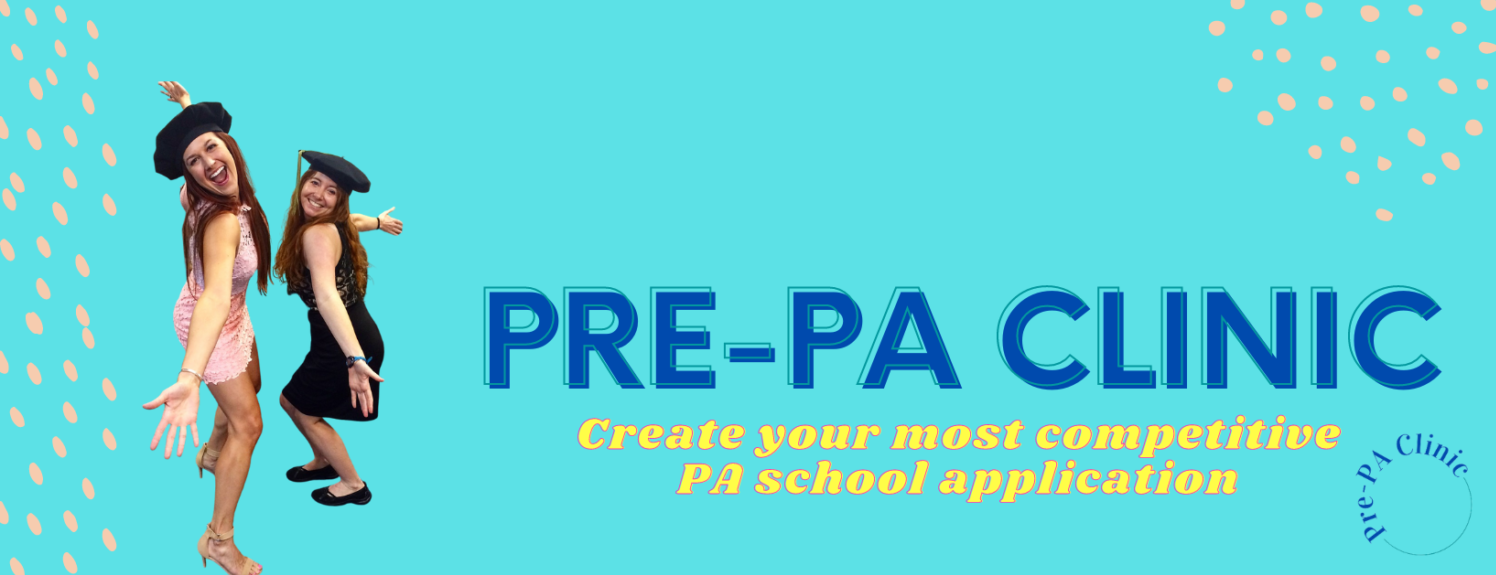
One of the biggest mistakes pre-PAs make on their CASPA application is listing every single experience they’ve ever had—thinking that more = better. But the truth is, PA schools don’t care about everything you’ve ever done. They care about the experiences that show you’re ready for PA school.
So, how do you decide what to include and what to leave out? Let’s break it down.
Why More Isn’t Always Better on CASPA
CASPA gives you plenty of space to enter healthcare experience, patient care experience, volunteering, leadership, shadowing, and extracurriculars. But just because you can enter everything doesn’t mean you should.
PA programs don’t have time to read through pages of experiences that don’t add value to your application, in fact, if you have a ton, they will start skipping through which means they could overlook meaningful entries. If an experience doesn’t show your commitment to medicine, patient interaction, leadership, or personal growth, it might just be taking up space.
Common Mistakes When Listing CASPA Experiences:
🚫 Including non-relevant jobs (ex: retail, babysitting, barista, waitress) that don’t connect to your journey to becoming a PA.
🚫 Listing short-term experiences that didn’t contribute significantly to your skills or knowledge.
🚫 Writing vague descriptions that don’t highlight your impact or responsibilities.
🚫 Failing to organize your skills strategically to emphasize the most important ones first.
Instead of filling all the slots just because they’re there, focus on quality over quantity.
What Experiences Should You Include on CASPA?
The key is to prioritize experiences that strengthen your application and make you a competitive candidate. Here’s what actually matters:
1. Patient Care Experience (PCE) – Must-Have
PA programs want to see hands-on patient care, where you were actively involved in treatment or decision-making. These are the most important experiences on your CASPA.
💡 What PA Schools Want to See:
- Direct patient interaction—taking vitals, assisting with procedures, giving injections, performing assessments.
- Growth in responsibility—did you gain more skills over time?
- A connection to your future as a PA—did your experiences and skills build a foundation that will help you as a PA student and PA
2. Healthcare Experience (HCE) – Important, But PCE Trumps HCE
HCE is still valuable, but involves working in a medical setting without directly providing care.
✅ Good Examples of HCE:
- Scribe
- Pharmacy technician
- Lab technician
👉 What to Leave Out: General office jobs that don’t relate to medicine.
3. PA Shadowing – Required by Most Schools
Shadowing is important! It proves that you understand the PA profession and what a PA does daily.
✅ Best Practices for PA Shadowing Entries:
- List each PA you shadowed, the specialty, and hours spent.
- Highlight variety—shadowing in multiple specialties is a plus.
- Share a key takeaway (ex: “I observed collaborative care between PAs and physicians in an emergency setting.”)
4. Volunteering – Include Your Commitment to Service
PA schools value service and community involvement.
💡 How to Frame It:
- Impact over hours—a meaningful experience is better than listing random short-term activities.
- Show how volunteering strengthened your communication, empathy, or leadership skills.
👉 What to Leave Out: One-time events that don’t demonstrate real impact (ex: volunteering for one hour at a fundraiser).
5. Leadership & Teaching – Bonus Points If Relevant
PA schools love to see leadership and teaching experience because PAs need strong communication skills.
✅ Great Leadership/Teaching Examples:
- Training new staff at your healthcare job
- Serving as a TA for a science class
- Coaching, tutoring, or mentoring others
- Leading a healthcare-related student organization
💡 How to Frame It:
- Emphasize skills that translate to being a PA (teamwork, communication, problem-solving).
- If you led a team in a medical setting, even better!
👉 What to Leave Out: Leadership roles that don’t relate or are far removed (ex: high school club leadership with no connection to medicine).
6. Extracurriculars – Only Include If Relevant
This section is optional and should be used strategically.
✅ Good Extracurriculars to Include:
- Pre-PA clubs
- Medical-related organizations
👉 What to Leave Out: Hobbies that don’t connect to your PA school journey, or anything that isn’t an organized activity.
How to Prioritize Your CASPA Experiences
Still not sure what stays and what goes? Use this checklist:
✅ Does this experience show direct patient care or healthcare exposure?
✅ Did I gain skills that will help me in PA school?
✅ Does it demonstrate leadership, service, or teamwork?
✅ Will it stand out to admissions committees?
If an experience doesn’t check these boxes, it might not be worth including.
Final Thoughts: Quality Over Quantity
PA schools aren’t impressed by long lists of unrelated experiences. They want to see focused, meaningful experiences that prove you’re prepared for the PA profession.
💡 What to Do Now:
1️⃣ Review your experiences and cut anything that doesn’t add value.
2️⃣ Rewrite your descriptions to emphasize skills, impact, and growth.
3️⃣ Make sure your strongest experiences stand out—PA schools won’t read everything in detail!
If you’re unsure whether your CASPA experiences are strong enough, we can help. Get your entire CASPA application reviewed by PAs with actual experience working on PA admissions, reviewing apps and deciding who to invite for an interview – basically, your app gets edited by THE gatekeepers – Make sure your app is exceptional and will stand out!

